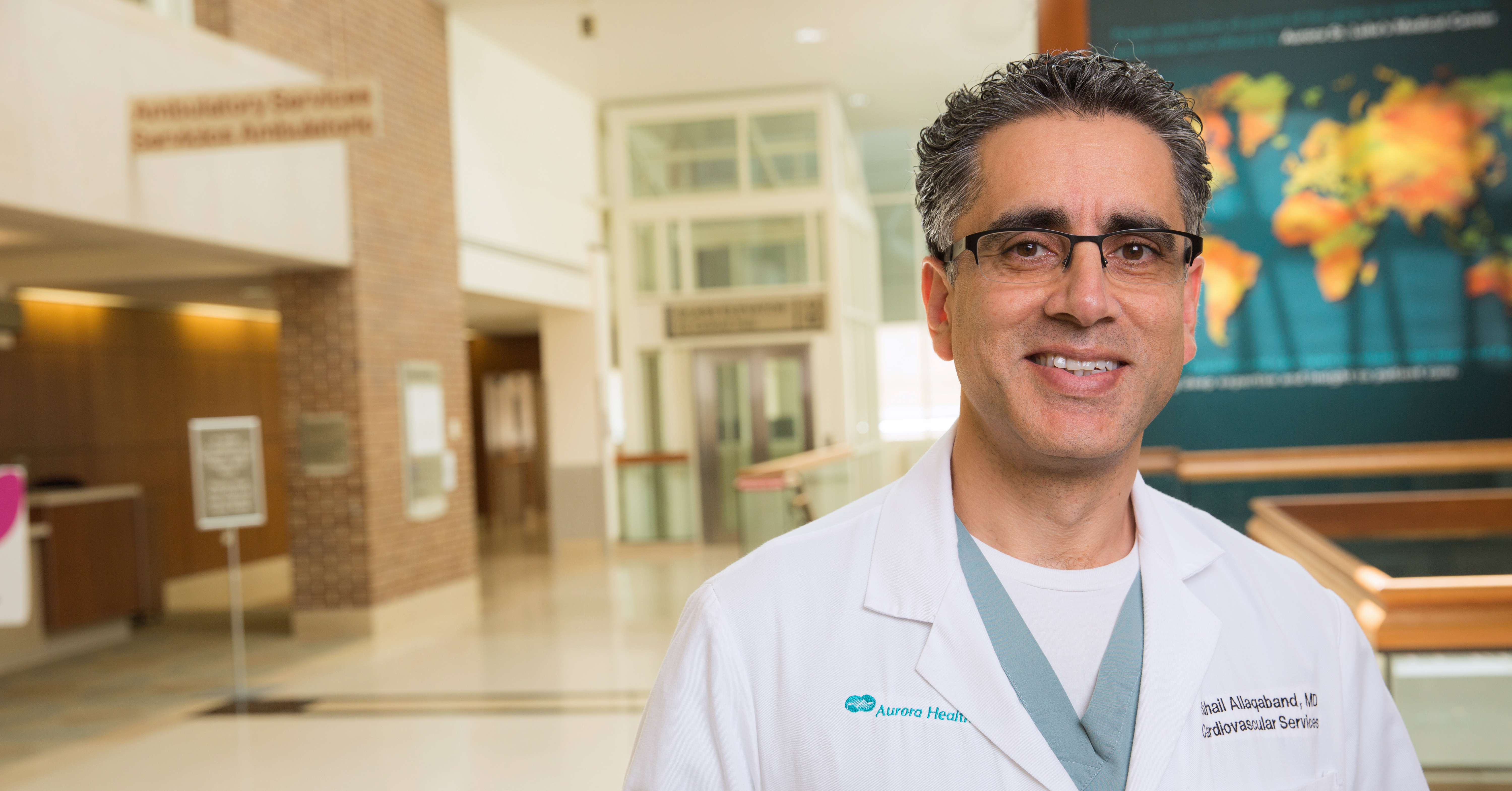Aurora St. Luke’s Medical Center in Milwaukee has completed its first procedure in a clinical study evaluating a minimally invasive alternative to open heart surgery for tricuspid valve replacement.
The early feasibility study, sponsored by Medtronic, is designed to provide early clinical insight into the performance of Medtronic’s Intrepid™ transcatheter tricuspid valve replacement (TTVR) system in people with tricuspid regurgitation.
Aurora St. Luke’s is the first site in Wisconsin and fourth in the country to treat a patient in this study. This is only the eighth research participant nationwide to be treated in this study.
“At the moment, open heart surgery is the only approved treatment option for people with tricuspid regurgitation who require repair or replacement of the tricuspid valve,” said interventional cardiologist Tanvir Bajwa, MD, Advocate Aurora Research Institute’s site principal investigator for the study. “Due to the high mortality rate associated with tricuspid surgery, there is a clear need for a less invasive alternative.”
In people with tricuspid regurgitation, the tricuspid valve fails to close completely, improperly allowing blood to flow back into the right atrium when the right ventricle contracts. It affects an estimated 1.6 million people in the U.S. Tricuspid regurgitation is often caused by an enlarged right ventricle that may result from other diseases, such as valve infection, Marfan syndrome or rheumatoid arthritis. Symptoms of tricuspid regurgitation include active pulsing in the neck veins, enlarged liver, fatigue and swelling throughout the body.
Current nonsurgical treatments for tricuspid regurgitation include diuretics and drugs aimed at treatment of the underlying disease. Left untreated, tricuspid regurgitation can lead to atrial fibrillation, heart failure and even death.
The Intrepid™ device is a bioprosthetic valve made from bovine tissue and polyester fabric that is set inside a flexible metal structure that can be placed within a person’s own tricuspid valve. A team of cardiologists and cardiac surgeons insert the device via a small tube called a catheter through a small incision in the femoral vein in the leg. The doctors then carefully thread the catheter, guided by imaging technology, through the body’s chain of blood vessels until it reaches the placement point in the heart, at which point the replacement valve is released and expanded to full size, and the catheter is removed.
“Standard surgical treatment for tricuspid regurgitation requires the patient’s chest to be fully open to sew a standard bioprosthetic valve directly into the heart while the patient is on bypass support and the heart is temporarily stopped,” said interventional cardiologist Suhail Allaqaband, MD, subinvestigator, whose patient received the implant. “Transcatheter tricuspid valve replacement is much less invasive and, thus, has a much lower risk of complication and a much shorter recovery time.”
Researchers are already investigating the use of the Intrepid™ system for replacement of the heart’s mitral valve. Because the mitral and tricuspid valves are similar in size and shape, researchers have begun to investigate whether the Intrepid™ system can be adopted for valve replacement in the tricuspid position.
“Advocate Aurora Research Institute has been a leader in transcatheter valve replacement and repair research, dating back eight years to our early participation in Medtronic’s transcatheter aortic valve replacement, or TAVR, clinical trials,” said Amit Acharya, PhD, chief research officer and system vice president for Advocate Aurora Health and the Research Institute. “The cardiac catheterization laboratory team has now performed thousands of noninvasive heart valve replacements.”
Researchers plan to enroll 15 participants in Medtronic’s TTVR early feasibility study and will monitor participants for five years after the procedure. The Intrepid™ TTVR system is an investigational device.
To learn more about Advocate Aurora’s research, visit aurora.org/research.
